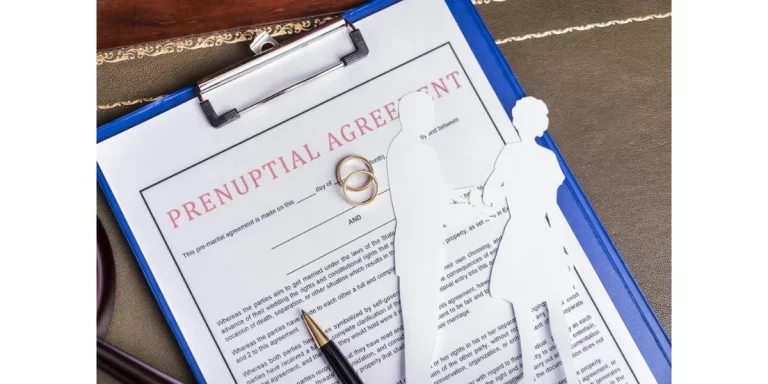The Crimes (Domestic and Personal Violence) Act 2007 (NSW) is legislation in New South Wales that allows the courts to make orders protecting people from domestic or family violence.
Purpose
AVOs (Apprehended Violence Orders) in AVO NSW Legislation aim to protect people who feel threatened and concerned about their safety.
Whether the violence is among your family members or someone you may or may not know, AVOs are made to keep you safe.
Types of AVO NSW Legislation
While the overarching purpose of an AVO is to ensure the safety and well-being of those who seek its protection, there are different types of AVOs, each designed to address specific circumstances and levels of threat.
Apprehended Domestic Violence Order
An Apprehended Domestic Violence Orders (ADVOs) in AVO NSW Legislation are granted when the protected person and the person they are ordered against have a family or domestic relationship, such as being married, in a relationship, or living together as a family.
Part 1 Section 5 of the AVO NSW Legislation describes the domestic relationship as follows:
- is or has been married to the other person, or
- is or has been a de facto partner of that other person, or
- has or has had an intimate personal relationship with the other person, whether or not the intimate relationship involves or has involved a relationship of a sexual nature, or
- is living or has lived in the same household as the other person, or
- is living or has lived as a long-term resident in the same residential facility as the other person and at the same time as the other person (not being a facility that is a correctional centre within the meaning of the Crimes (Administration of Sentences) Act 1999 or a detention centre within the meaning of the Children (Detention Centres) Act 1987), or
- has or has had a relationship involving his or her dependence on the ongoing paid or unpaid care of the other person (subject to section 5A), or
- is or has been a relative of the other person, or
- in the case of an Aboriginal person or a Torres Strait Islander, is or has been part of the extended family or kin of the other person according to the Indigenous kinship system of the person’s culture.
Apprehended Personal Violence Order
A person who requires protection from someone with whom they do not have a domestic relationship can personally apply for Apprehended Personal Violence Order (APVO) through the Local Court (known as a ‘private application’), or the police can apply for an APVO on their behalf (known as a ‘police application’)
Interim AVO
In AVO NSW legislation, the Court can issue an Interim Apprehended Violence Order.
The Court grants temporary protection if it deems it necessary or appropriate.
Depending on the circumstances, the Court may make the Interim AVO immediately or may want evidence showing why it is necessary. The Court may accept several types of evidence, including affidavits, police statements, and oral testimony.
Also read: What Is Evidence That Cannot Be Used In Court
A court must make an interim AVO against you if you have been charged with a serious offence, regardless of whether an interim AVO application has been submitted.
Serious offenses include:
- Attempt to commit murder
- Domestic violence offenses or attempted domestic violence offenses
- Intimidation or stalking intended to cause fear of physical or mental harm to the victim
- The infliction of grievous bodily harm or wounds
- The act of sexual assault or the attempt to commit sexual assault
- An act of sexual contact.
Interim AVOs can still be made against you even if you do not go to court.
An Interim AVO will be made, and you will be given a date when you must appear in court so that the Court can decide whether a Final AVO should be granted.
Final AVO
A Final Apprehended Violence Order (AVO) according to the AVO NSW legislation can be issued if:
- There is no court appearance
- Upon receiving a final AVO, you consent (agree) to it
- An applicant is successful at a hearing.
Key Takeaways
- The Crimes (Domestic and Personal Violence) Act 2007 (NSW) is legislation in New South Wales that allows the courts to make orders protecting people from domestic or family violence.
- There are two types of AVO: The Apprehended Domestic Violence Order (ADVO) and the Apprehended Personal Violence Order (APVO).
- An ADVO is granted when the protected person and the person they are ordered against have a family or domestic relationship, such as being married, in a relationship, or living together as a family.
- A person who requires protection from someone with whom they do not have a domestic relationship can personally apply for an APVO through the Local Court (known as a ‘private application’), or the police can apply for an APVO on their behalf (known as a ‘police application’)
- There are two types of temporary AVO: Provisional and Interim AVO.
- Final AVOs are decided when the defendant makes no court appearance; upon receiving the final AVO, the defendant consents (agrees) to it, and the application is successful at a hearing.
At Justice Family Lawyers, we understand the complexity of AVOs and DVOs, and we are committed to providing our clients with the highest quality legal advice and representation.
Our AVO lawyers and practitioners possess extensive experience and knowledge, dedicated to ensuring our clients achieve the utmost favourable outcome with our unwavering commitment.
Principal of Justice Family Lawyers, Hayder specialises in complex parenting and property family law matters. He is based in Sydney and holds a Bachelor of Law and Bachelor of Communications from UTS.





